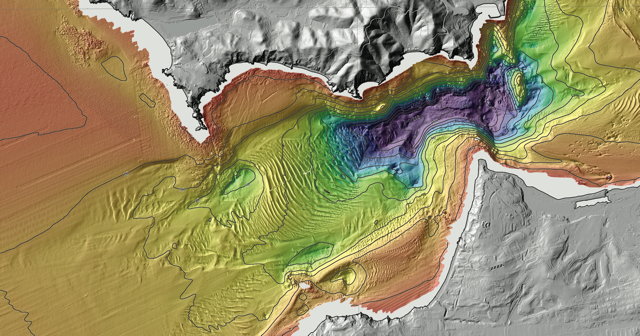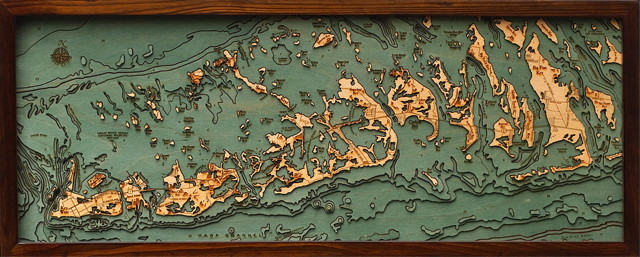 A paper in Atlantic Geoscience is basically arguing that the Gough Map offers evidence that the Welsh legend of the sunken kingdom of Cantre’r Gwaelod —a sort of Welsh Atlantis—is real. Actually, no. Not quite. That’s clickbait—and the headline for the BBC News story about the study.
A paper in Atlantic Geoscience is basically arguing that the Gough Map offers evidence that the Welsh legend of the sunken kingdom of Cantre’r Gwaelod —a sort of Welsh Atlantis—is real. Actually, no. Not quite. That’s clickbait—and the headline for the BBC News story about the study.
In their paper, the complete text of which is available online, physical geographer Simon Haslett and professor of Celtic David Willis are trying to reconstruct the post-glacial evolution of Wales’s Cardigan Bay using historical and folklore sources as well as bathymetric data and geological evidence. (It’s pretty obvious which author contributed what.) The Gough Map shows two islands that don’t correlate to any real island in Cardigan Bay; the study suggests that the islands may have in fact existed and have since been lost to flooding, erosion and other post-glacial changes to the shorelines. There are several submarine highs in the bay that may match up with the lost islands. The paper hypothesizes that the Cantre’r Gwaelod legend is a folk memory from when the coast was much different: that there were islands in Cardigan Bay, that they disappeared during the human era, and this legend is one of their traces.
In other words, a bit different from taking an old map at entirely too much face value (which, to be sure, has been enough of a thing that it was first to mind when I saw the story). They’re using the map and the legend to try and figure out the shoreline’s history—not using the map to prove the legend.








